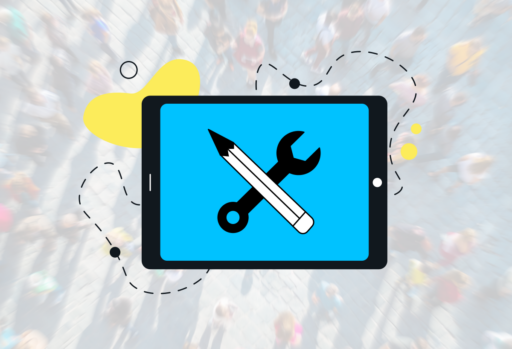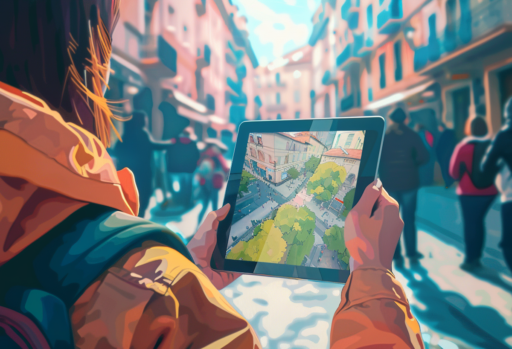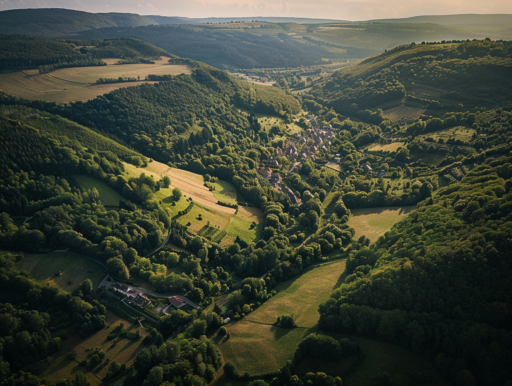We interviewed Alberta Food Tours team about why and how they create gamified audio tours for people visiting Western Canada. Watch video:
Transcript
Hello! We are here today with Alberta Food Tours founder Karen and operations manager Callandra.
Hi, nice to meet you!
Hi! Thanks for having us, it’s nice to be here.
And the plan is to talk a bit about what you do, what kind of tours and how Loquiz fits also into that.
So can you briefly tell me about Alberta Food Tours – what kind of tours do you offer, how are they conducted and who are the people who are engaged with the tours?
Sure, Liisa. We started Alberta Food Tours in 2006, so we were a bit of a pioneer in the food tour industry. It started very slow, it was just me in the beginning, and gradually we got a little bit bigger and had four-five different neighborhood walking tours around Calgary, Alberta here in Western Canada near the Rocky Mountains. And you know gradually I had to hire a few guides and then by 2016 we expanded to Canmore which is the gateway to the Rocky Mountains, the Banff National Park and then to Edmonton which is the capital of our province, has a great food scene. And in is a very famous destination in Canada, absolutely stunning scenery, and of course that attracts a lot of great chefs for the great hotels that are there.
Create games, self-guided and audio tours, team building events and educational content that captures peoples' attention.
Start for freeSo uh by 2019 we had 8 tours in schedule of about 14 tours. We’re also working with tourism operators from around the world to offer custom tours, to be a step-on guide and create a day-long adventure or to do private tours for people and corporations. We were really starting to blossom in that area.
And you know Callandra was instrumental in a lot of that, helping with the operations and our guides were cross-trained, but typically all of our tours at that time were in-person guided tours and they were anywhere
from three hours to a full day. And then March of 2020, March 12th of 2020 the Canadian Government, the provincial health board, really closed everything down for the pandemic and um you know we’re very lucky at Alberta Food Tours, I was a nurse, I was a nurse practitioner for 21 years so I’ve always been very clear on why I do food tours. It wasn’t really a tourism mandate for me, it was about increasing the health of soil, food and people.
So we’ve always chosen our partners people that do that, they um chefs that support farmers that farm organically or regeneratively because we believe that strong soil creates strong food, creates strong people. So because that’s our why, we do that through storytelling and creating these connections through our tours, but because we have that strong why, when the pandemic happened in our in-person tours couldn’t happen, we went back to that why and thought how else can we achieve that. So we thought well, if we can’t leave the tours maybe people can do a self-guided tour and we can facilitate that and so that’s how we began this quest to find a great partner to help us develop our company further along those lines.
Okay, but why did you decide to choose Loquiz to create self-guided tours?
Well that’s a great question! You know we did review over the last year lots of options but for me if you know where the world is going in economies, you know we’ve come from the agrarian culture where food became a commodity, we’ve gone through the industrial age where things have become a commodity, we’ve gone through now information is you know anybody can get any information they want, services they’re being treated as commodities, you know a hotel room or a ride. So we could see that in the future there would be a decline in the services like ours, a decline in the value of them as well, so as a company we’ve been moving towards the experience economy, we know that experiences and transformation are the next economies that people value. So you know a few of our tours were actually designated Canadian signature experiences because we you know, we could see that coming, and we were involving people and immersing them in our, we’re shifting from a tour to an experience.
So if we were going to go in a self-guided stream, we didn’t want it to be just like somebody picking up a headset and listening to somebody else talk. We wanted to immerse somebody into an experience and so the typical self-guided mediums of a map, that maybe has some pins that you press on and then it links you to a restaurant or a hotel or a micro story, that didn’t really do it with us. And you know I’m 59 years old Callandra is a bit younger, she’s got teenagers, I’ve got a 20-year-old and you don’t have to even have that to realize how powerful gaming is and how somebody can just become completely immersed in a game. So to me I didn’t want to just come up with another tourism staple like going to a museum and listening to an audio phone or traveling and you know clicking on a guide, I wanted to create a game and so Callandra did some great research and found a colleague in the United States who had found Loquiz and we just jumped on board. We thought this is, this is the direction we want to go in and I’ll let Callandra speak more about how that progressed and how we did find that the products suited our needs.
So, um, the one thing, so like Karen said we found a colleague who was using Loquiz and I don’t even recall Karen if we had thought about doing a self-guided tour before we found the product or if the product came first.
No, we thought about it but we were just stumped by how to make it exciting because we were like what do we do, do we give, you know mail out a pdf, it just seemed archaic and so yeah we wanted better technology, yeah something fun. So when we found Loquiz I actually got in right away and was able to start using it and playing with it and then interestingly we went to another online virtual conference where we were introduced to a whole other variety of companies that were platforms to allow self-guided tours.
So once I had been in Loquiz, understood how it worked a little bit, understood the variety of clues which was a big one for us, then I was able to review the other platforms and Loquiz continually came out on top for us as the platform that we wanted to continue using. Really just because there’s so much opportunity to get creative within the platform.
You have added quite a few gamification elements to the tours, are there any favorite tasks you really personally like or find exciting or are just proud of?
Yeah, well, my favorite so the uh I forget what the clue is technically called within the game but when we can do a picture overlay – those are absolutely my favourite. So what we’ve done a few times is we’ll find a historic photo and then I’ll cut that historic photo in half and the guest has to overlay it with what the current place looks like, especially if we’ve got historical buildings and I think that’s just so neat to be able to see, you know really in real-time, this is what this space look like, so I love bringing history to life with that. So those are probably one of my favourites and then also we make people do kind of silly things and videos.
We share a few kind of goofy videos and I like those too, I think they’re kind of fun. I like the noises that we can put in and one of the current game that we’re about to launch next week, you know the storyline has to do with someone trying out for the Olympics and all the food they have to eat to train. So we’re able to put in noises of you know cowbells cheering and it just brings it to life, so that the player feels like: “Hey, somebody’s cheering for me, this all depends on me.” So, it really does make it much more alive for the game player. These are really cool examples, I was not aware of these.
Okay, but from the players, what kind of feedback you have gotten, what seems to excite players? Are the same things or something else?
Well, the one thing that we consistently hear is, and it makes me very happy because it was the same almost the same thing with our in-person tours, is that we’re getting the feedback that after playing the game people leave with a sense of discovery. They were surprised how many things they discovered, so we are able to through micro-stories, through photography, through art, through the places we place our pins, we’re still able to lead them uh on a neighborhood through a certain prism, through a certain ally to storytelling and they come away having that sense of discovery.
And instead of just following a leader around, they’re immersed in it, they’re the ones who have to discover it and find it, so I think it’s even a deeper sense of discovery than when they were just following our guide.
I also think too that the guests have an opportunity to spend more time in the places that interest them in particular. So we’ve had people do our game, you know quite quickly, where they’re doing some of the stops but they’re finished relatively quickly. And then we’ve had people take two days to do our game, where they want to stop at several different restaurants and they want to eat and engage so it really gives people an opportunity to explore what they want to explore, instead of having to go to places that are on a list because if they’re not interested, they just move on or they can spend hours in a place there’s no, when we do our games we don’t do time limits for that reason.
Yeah and when we did our in-person tour, say in the Kensington neighborhood of Calgary, which is a really cool small neighborhood, when we did the walking tour we could visit five places in three hours because we always did sit down knife and fork meals and now we have over you know instead of going maybe five blocks they now walk 1.5 kilometers. Yeah so it’s a longer route and we’re happy because we can include a lot more, so it’s fun.
So what are the most common problems when creating self-guided tours with or without the software? And what kind of problems platform like Loquiz solves for you?
Do you want me to take that one Karen? Yeah, I think to be clear, we never tried to do a self-guided tour without Loquiz, so we’ll give you the, we’ll focus on some challenges we found in doing it. But yeah Callandra will speak to that.
Yeah I mean I think our before as Karen spoke too a little bit earlier, when we thought of a self-guided tour just figuring out a structure, like how do we do this, was a roadblock.
So walking into Loquiz and seeing game examples, seeing clue examples, the clue examples were huge because I would have never thought to overlay a photograph or you know do, I probably would have thought of multiple choice.
But there’s different types, different clue types, that because those examples exist, that gave us a bunch of ideas and also just having the structure.
Sometimes when your options are unlimited it is more difficult, so within Loquiz there’s a structure. You can do a scavenger game, you can do a rogaine game, here’s the structure within these types of games so you need to think about – how do I want my game to run, how could I input it into these structures and how will that work? So I think for us the problem that Loquiz really solved is it helped guide us in deciding how we were going to do a self-guided tour.
Okay, that was a new angle for me. Thanks! But how long did it take to set it up, test and start selling actually the tour? What was the timeline?
Yeah, so it took us quite a while to be honest with you but it wasn’t related to the software necessarily. A lot of the time was spent in the storytelling, we really wanted to and we learned a lot about engaging experiences and we really wanted to create a story that had a thread that went all the way through it, that was related to the place that people were in. So the storytelling and creation took some time and we also, like Karen said, we engage a lot of partners on the tours so explaining to partners what the tour was and what a self-guided food tour that you play on an app is, which you know there’s not even a great word for that, it’s a product that people have never really heard of before.
And then bringing them on board and we also, I don’t know if Karen’s mentioned this, but our guests get offers within the game, so it could be a discount, it could be a free cookie to nibble on, it could be you know a coffee. So engaging our partners, that really did take some time.
Loquiz using the actual software itself was pretty quick to pick up, so that component, understanding how I create a clue and I load it in, that was pretty fast, that didn’t take that much time.
Testing took a little bit more time, we really had to learn what the restrictions of the gps were, so we find interestingly and you know some neighborhoods with taller buildings the gps is a little less accurate. So in the end we don’t rely a hundred percent on gps, we always allow our clues to be opened regardless of if they’re at the spot or not, just in case there’s an issue with the gps, so that took some time. And then the other component that you know we spent some time on was figuring out how to sell the product because Loquiz was always designed for event planners to create an event for a group of people and then it would be quite easy to distribute access to the game, the you know the the login and password, whereas with us we’re selling this game you know 365 days of the year pretty much and we have to find a really quick delivery system to get the password and code to people. So working with our ticketing platform and working with Loquiz to figure out a quick efficient way to get that information to them, that took some time as well.
Create games, self-guided and audio tours, team building events and educational content that captures peoples' attention.
Start for free
Okay, thanks, it covered the full cycle from rating the game to selling it. So how many people from your team were involved in all of this process you just described?
You’re looking at us. The two of you? Yes, you know because of the pandemic we went from, we had 19 guides per time but you know always myself and Callandra’s the operations manager, so you know it’s been an achievement with no ongoing income to keep Callandra employed, so I got busy and I wrote grants so that we could find funding for development and we were successful in that.
Planter says I’m pretty good at that. And so we were able to keep her going and you know in a lot of ways the pandemic has been awful in the world of course, but it also gave us what I would describe as a sabbatical. It gave us time away from our usual duties to imagine, to create and to develop. And those are things when you’re an entrepreneur and you’re busy in your business, it’s hard to ever find the time to step away.
I had wanted to do some kind of app or self-guided tour for a lot of years, but it wasn’t until this pandemic that we actually had time to focus, to research, to find the answers. And we also involved, we did hire a consultant for a half day, somebody we knew who is a great storyteller and has worked in the gaming industry, and so we had a half day consult with him and you know he really helped us to just zone in on what it is people are looking for. And I’ll give you a little hint, people want to be the hero in whatever game they’re playing. So that, you know just things like that, that perspective really helped us and then as we’ve moved on to develop the second game, we were able to zero in much more quickly and then we’ve subsequently gone back and improved the first game from what we’ve learned from building the second one.
And we’re now building a third game, even though we’re just ready to launch the second game, we’re building a third one that’s quite different. It’s you know the first two get one, the first game was a neighborhood, the second game was a town which is like a three kilometer loop recover and now we’re covering a 345-kilometer drive between two cities and trying to activate that and make it exciting for people and offer them, offer them things to do that will help raise the economy in that whole region. So that’s exciting work for us and the word got out about our game and we were hired to do this. So that’s a potential new income stream for us, so it’s exciting.
Any other future plans you can reveal about creating the tours besides these?
I think that you know the big thing is to concentrate on marketing now, we’ve got great product, we like it so now it’s the thing in every business is connecting with your market, so we’ll find ways to do that. And get the word out and get people playing it and as the world comes back I’m excited because you know we didn’t fit into everybody’s schedule and we need a product that is flexible and accessible and so I think we’re going to capture more market share because so many travellers are do-it-yourselfers, we’re excited about that.
And I can see us doing lots more of these, Alberta is a huge province, it’s the size of the Netherlands and Belgium all together, it’s the size of, it’s bigger than Texas, so you know and there’s just you know there’s some really special places here and I think that we’ll be able to activate and animate a lot of the areas here. So I think we’ll do a lot more, I know that Loquiz has more complicated games but if we can achieve what we want to achieve with simplicity, we’ll stick with that for now.
We’re pretty happy with what we’ve been able to do because we’re not programmers at all and Callandra, I give her credit, she’s learned a lot and I like to stick to the storytelling part and between the two of us we have a good creative process. That is a good combination and I’m glad that you have found that.
But what would you say to other tour operators who are still hesitating whether to try this kind of solution or not, what would you say to them?
Well, I think again going back to where we’re at in the world in global economies I think that if that there is a strong need to embrace technology and there’s a strong need to move from just offering a service to creating experiences and opportunities for transformation. So I think that adapting and adopting technology is the way to go, I think that if you look at how people spend their leisure time, a lot of people spend their leisure time gaming, and so for me to put that all together, I think that it’s going to be the next waving tourism, of course people will want flexibility, they want it to be accessible affordable and everybody has a mobile device and they travel with it and data is not an issue anymore really for most people. So I think that as much as we love the in person contact, you’ll be able to share a lot more about your destination and about the people there. Like we set it up so that in our game people actually have to go in and connect with the business owner to solve a clue, so there’s ways to always meet the primary goal of tourism, that creation of connection between cultures and people. And so for me I think businesses could get left behind if they don’t look forward to where we’re going and innovate. So I’m glad we have this opportunity and yeah I’m not saying I’m grateful for a pandemic, but I’m grateful that for the time it gave us.
The other thing I would add to that is I think people are afraid of learning new technology and you know when you first open Loquiz if you’ve never seen a platform like that before, which I hadn’t either, it can be a little bit intimidating but it wasn’t that hard to learn. Honestly, it wasn’t very tough and the support was really good so we had you know there was a lot of emails back and forth trying to understand how things worked and we really felt like there was strong support as we were developing the games and understanding the different elements of it. So just from a perspective of new technology and what it actually looked like to develop it, it’s not as scary as you might think it was.
I have a bonus question for you. So if you could say one, if you could say in one or two sentences one thing people should remember from today’s conversation, what you would like them to remember?
Oh Callandra what about you? Innovate, I just have one word-innovate. I stole it from you Karen, sorry. That’s good and I just think that you still want to create an immersive experience, you want people to use the mobile device and the game and their app to immerse themselves in a culture and to create their own experience through what you’ve set up for them. That is going to be the most powerful thing.
Okay, thank you! I’m really grateful you could join me today for this interview and I really hope you will have an exciting season ahead and all the future plans for self-guided tours will come into life. So thank you
again and bye!
Bye, thank you!
Related stories

Playing games is fun, but creating games is even better. What if you generate a profit from your own game...

Implementing gamification on your self-guided city tour using people’s devices can enhance the overall experience in several ways. Here are...

When you go into nature, you might not have an internet network. And yet, there are still amazing places where...
Start free trial to bring your ideas to life
Sign up and create games, tours, team events and educational content that captures peoples' attention
Start from the scratch or use templates to kickstart!

